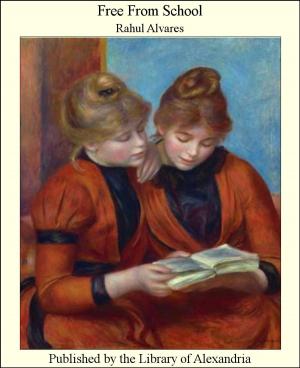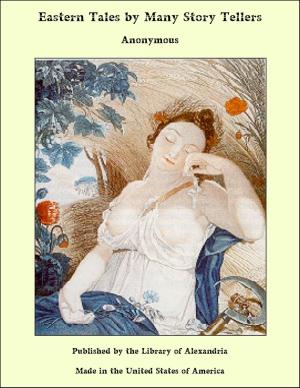| Author: | Marah Ellis Ryan | ISBN: | 9781465507792 |
| Publisher: | Library of Alexandria | Publication: | March 8, 2015 |
| Imprint: | Language: | English |
| Author: | Marah Ellis Ryan |
| ISBN: | 9781465507792 |
| Publisher: | Library of Alexandria |
| Publication: | March 8, 2015 |
| Imprint: | |
| Language: | English |
Near Moret, in France, where the Seine is formed and flows northward, there lives an old lady named Madame Blanc, who can tell much of the history written herethough it be a history belonging more to American lives than French. She was of the Caron establishment when Judithe first came into the family, and has charge of a home for aged ladies of education and refinement whose means will not allow of them providing for themselves. It is a memorial founded by her adopted daughter and is known as the Levigne Pension. The property on which it is established is the little Levigne estatethe one forming the only dowery of Judithe Levigne when she married Philip AlainMarquis de Caron. There is also a bright-eyed, still handsome woman of mature years, who lives in our South and has charge of another memorialor had until recentlya private industrial school for girls of her own selection. She calls herself a creole of San Domingo, and she also calls herself Madame Trouvelotshe has been married twice since she was first known by that name, for she was never the woman to live alonenot she; but while the men in themselves suited her, their names were uncompromisingly plaindid not attract her at all. She married them, proved a very good wife, but while one was named Johnson, and another Tuttle, the good wife persisted in being called Madame Trouvelot, either through sentiment or a bit of irony towards the owner of that name. But, despite her vanities, her coquetries, and certain erratic phases of her life, she was absolutely faithful to the trust reposed in her by the Marquise; and who so capable as herself of finding the poor girls who stood most in need of training and the shelter of charity? She, also, could add to this history of the woman belonging both to the old world and the new. There are also official records in evidence of much that is told heredeeds of land, bills of sale, with dates of marriages and deaths interwoven, changed as to names and places butThere are social friendsgay, pleasure-loving people on both sides of the waterwho could speak, and some men who will never forget her. One of them, Kenneth McVeigh, he was only Lieutenant McVeigh then!saw her first in Parisheard of her first at a musicale in the salon of Madame Choudey. Madame Choudey was the dear friend of the Countess Helene Biron, who still lives and delights in recitals of gossip belonging to the days of the Second Empire. The Countess Helene and Mrs. McVeigh had been school friends in Paris. Mrs. McVeigh had been Claire Villanenne, of New Orleans, in those days. At seventeen she had married a Col. McVeigh, of Carolina. At forty she had been a widow ten years. Was the mOther of a daughter aged twelve, and a six-foot son of twenty-two, who looked twenty-five, and had just graduated from West Point. As he became of special interest to more than one person in this story, it will be in place to give an idea of him as he appeared in those early days;an impetuous boy held in check, somewhat, by military discipline and his heighthe measured six feet at twentyand also by the fact that his mOther had persisted in looking on him as the head of the family at an age when most boys are care-free of such responsibilities
Near Moret, in France, where the Seine is formed and flows northward, there lives an old lady named Madame Blanc, who can tell much of the history written herethough it be a history belonging more to American lives than French. She was of the Caron establishment when Judithe first came into the family, and has charge of a home for aged ladies of education and refinement whose means will not allow of them providing for themselves. It is a memorial founded by her adopted daughter and is known as the Levigne Pension. The property on which it is established is the little Levigne estatethe one forming the only dowery of Judithe Levigne when she married Philip AlainMarquis de Caron. There is also a bright-eyed, still handsome woman of mature years, who lives in our South and has charge of another memorialor had until recentlya private industrial school for girls of her own selection. She calls herself a creole of San Domingo, and she also calls herself Madame Trouvelotshe has been married twice since she was first known by that name, for she was never the woman to live alonenot she; but while the men in themselves suited her, their names were uncompromisingly plaindid not attract her at all. She married them, proved a very good wife, but while one was named Johnson, and another Tuttle, the good wife persisted in being called Madame Trouvelot, either through sentiment or a bit of irony towards the owner of that name. But, despite her vanities, her coquetries, and certain erratic phases of her life, she was absolutely faithful to the trust reposed in her by the Marquise; and who so capable as herself of finding the poor girls who stood most in need of training and the shelter of charity? She, also, could add to this history of the woman belonging both to the old world and the new. There are also official records in evidence of much that is told heredeeds of land, bills of sale, with dates of marriages and deaths interwoven, changed as to names and places butThere are social friendsgay, pleasure-loving people on both sides of the waterwho could speak, and some men who will never forget her. One of them, Kenneth McVeigh, he was only Lieutenant McVeigh then!saw her first in Parisheard of her first at a musicale in the salon of Madame Choudey. Madame Choudey was the dear friend of the Countess Helene Biron, who still lives and delights in recitals of gossip belonging to the days of the Second Empire. The Countess Helene and Mrs. McVeigh had been school friends in Paris. Mrs. McVeigh had been Claire Villanenne, of New Orleans, in those days. At seventeen she had married a Col. McVeigh, of Carolina. At forty she had been a widow ten years. Was the mOther of a daughter aged twelve, and a six-foot son of twenty-two, who looked twenty-five, and had just graduated from West Point. As he became of special interest to more than one person in this story, it will be in place to give an idea of him as he appeared in those early days;an impetuous boy held in check, somewhat, by military discipline and his heighthe measured six feet at twentyand also by the fact that his mOther had persisted in looking on him as the head of the family at an age when most boys are care-free of such responsibilities















